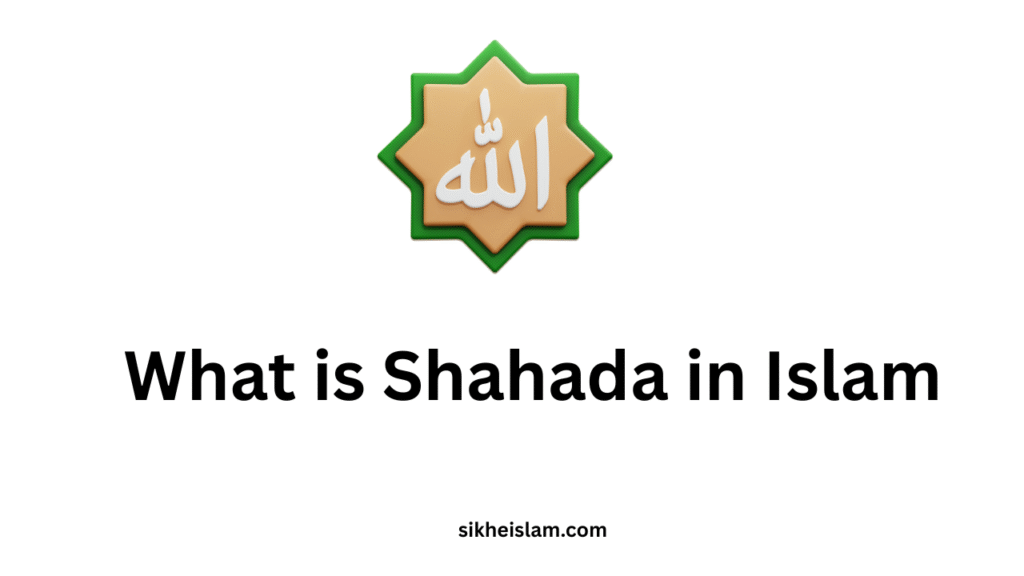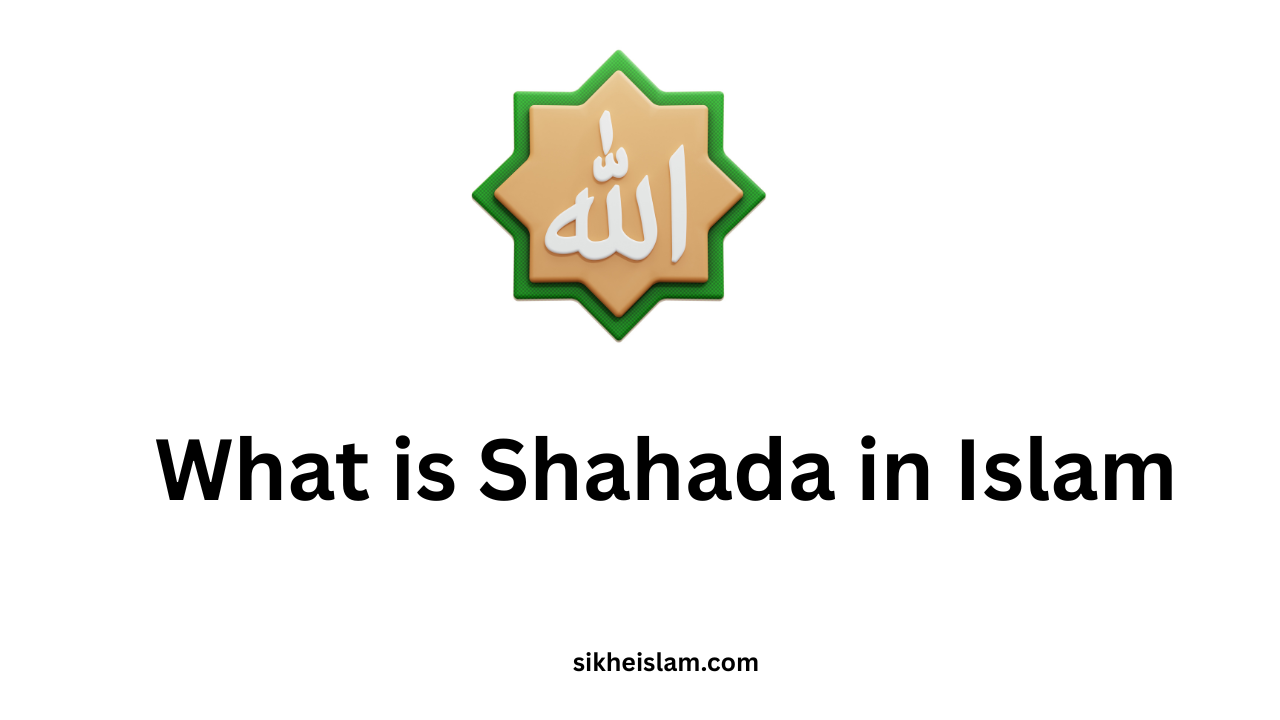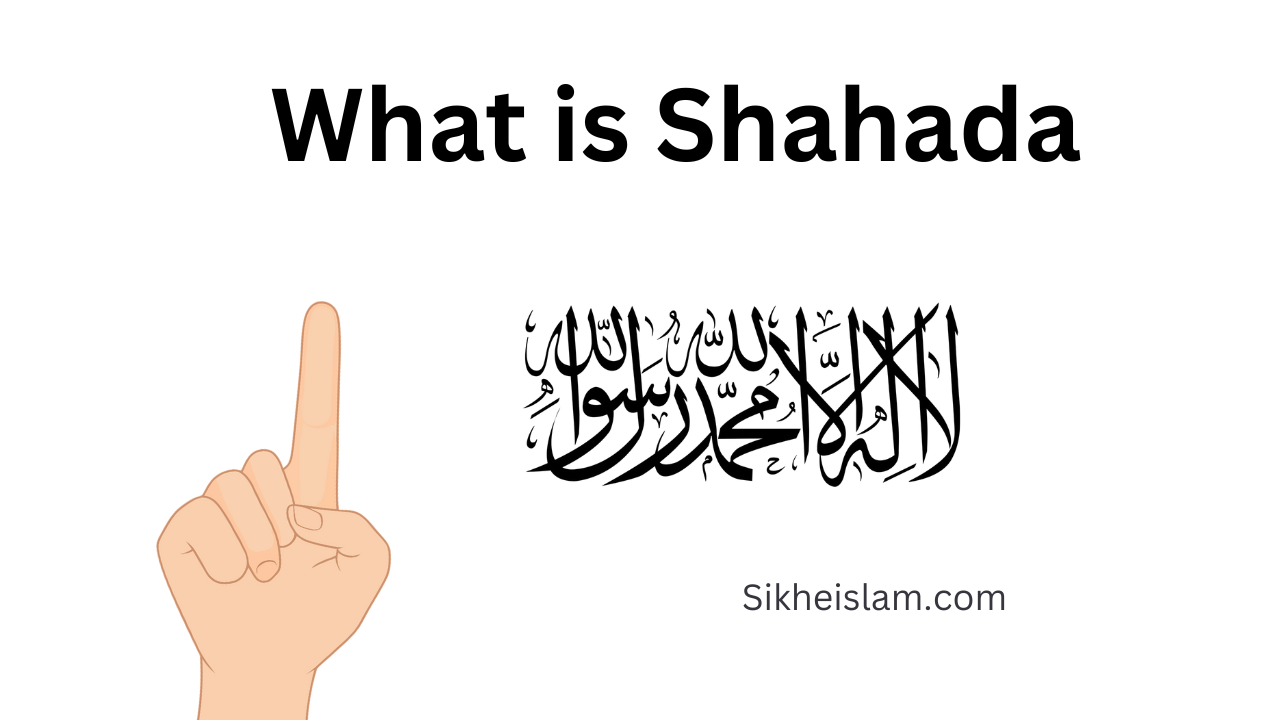The Shahada is the cornerstone of Islamic faith, serving as the declaration that defines a Muslim’s belief. For those seeking to understand what is Shahada in Islam, this blog provides a detailed exploration of its meaning, significance, and role in the life of a Muslim. By delving into its components, spiritual importance, and practical application, we aim to offer a clear and SEO-friendly guide to this fundamental Islamic concept.
Table of Contents

Understanding What is Shahada in Islam
The term Shahada comes from the Arabic word meaning “to testify” or “to bear witness.” It is the Islamic declaration of faith, encapsulating the core beliefs of a Muslim. When someone asks, what is Shahada in Islam, the simplest answer is that it is a statement affirming the oneness of God (Allah) and the prophethood of Muhammad (peace be upon him). The Shahada is the first of the Five Pillars of Islam, which are the foundational acts of worship for Muslims.
The Shahada is expressed in Arabic as:
“La ilaha illallah, Muhammadur Rasulullah”
This translates to:
“There is no god but Allah, and the Prophet Muhammad ﷺ is the Messenger of Allah.”
This declaration is not just a phrase but a profound commitment to monotheism and the acceptance of Prophet Muhammad as God’s final messenger. For anyone exploring what is Shahada in Islam, it represents the entry point into the Islamic faith.
The Two Parts of the Shahada
To fully grasp what is Shahada in Islam, it’s essential to break it down into its two components:
- Tawhid (Oneness of God): The first part, “La ilaha illallah” (There is no god but Allah), emphasizes the belief in monotheism. It declares that Allah is the only deity worthy of worship, rejecting all forms of polytheism or idolatry. This concept, known as Tawhid, is the bedrock of Islamic theology.
- Risalah (Prophethood): The second part, “Muhammadur Rasulullah” (Muhammad is the Messenger of Allah), acknowledges Prophet Muhammad as the final messenger sent by Allah to guide humanity. It affirms the belief in his teachings and the Quran as divine revelation.
Together, these two parts encapsulate the essence of what is Shahada in Islam, serving as a testament to a Muslim’s faith and submission to Allah.
The Significance of the Shahada in Islam
- Entry into Islam: Reciting the Shahada with sincerity and conviction is the formal act of embracing Islam. It marks the moment a person becomes a Muslim, signifying their acceptance of Islamic beliefs.
- Spiritual Foundation: The Shahada is a constant reminder of a Muslim’s purpose—to worship Allah alone and follow the guidance of the Prophet Muhammad. It anchors their faith and daily practices.
- Unity of the Muslim Ummah: The Shahada unites Muslims worldwide, regardless of culture, language, or ethnicity. It is a universal declaration that binds the global Muslim community.
For those curious about what is Shahada in Islam, it is a symbol of identity, faith, and devotion that resonates deeply within the Muslim heart.
How is the Shahada Performed?
Understanding what is Shahada in Islam also involves knowing how it is performed. The Shahada is recited in arabic language, and its recitation must be done with full understanding, sincerity, and intention. Here’s how it typically takes place:
- Sincerity of Heart: The person must believe in the meaning of the Shahada and recite it willingly, without coercion.
- Public or Private Declaration: While the Shahada can be recited privately, it is often done in the presence of witnesses, especially when someone is converting to Islam. This public declaration solidifies their commitment to the faith.
- Repetition in Daily Life: Muslims recite the Shahada during their daily prayers (Salah) and at various moments in their lives, reinforcing their faith.
For those asking what is Shahada in Islam, it’s a simple yet profound act that carries immense spiritual weight.
The Role of the Shahada in Daily Muslim Life
The Shahada is not a one-time declaration but a guiding principle that influences every aspect of a Muslim’s life. When considering what Shahada is in Islam, it’s important to recognize its practical implications:
- In Prayers: The Shahada is recited in the Tashahhud, a part of the daily Salah, reminding Muslims of their core beliefs during worship.
- In Conversion: For new Muslims, reciting the Shahada is the first step in their journey of faith, often accompanied by guidance from the Muslim community.
- In Life and Death: The Shahada is often the last words a Muslim utters before passing, symbolizing their lifelong commitment to Allah.
By understanding what Shahada is in Islam, one can appreciate how it permeates both the spiritual and practical dimensions of a Muslim’s life.
Common Questions About the Shahada
For those researching what is Shahada in Islam, here are answers to some frequently asked questions:
- Do you need to recite the Shahada in Arabic?
Yes, the Shahada is traditionally recited in Arabic to maintain its authenticity and universality. However, new Muslims can learn its meaning in their native language to ensure understanding. - Can anyone recite the Shahada?
Anyone can recite the Shahada, but it only holds religious significance when done with sincere belief and intention. - Is the Shahada enough to become a Muslim?
Yes, reciting the Shahada with conviction is sufficient to enter Islam. However, learning and practicing the other pillars of Islam are essential for a complete Muslim life.
Read more Sikheislam


